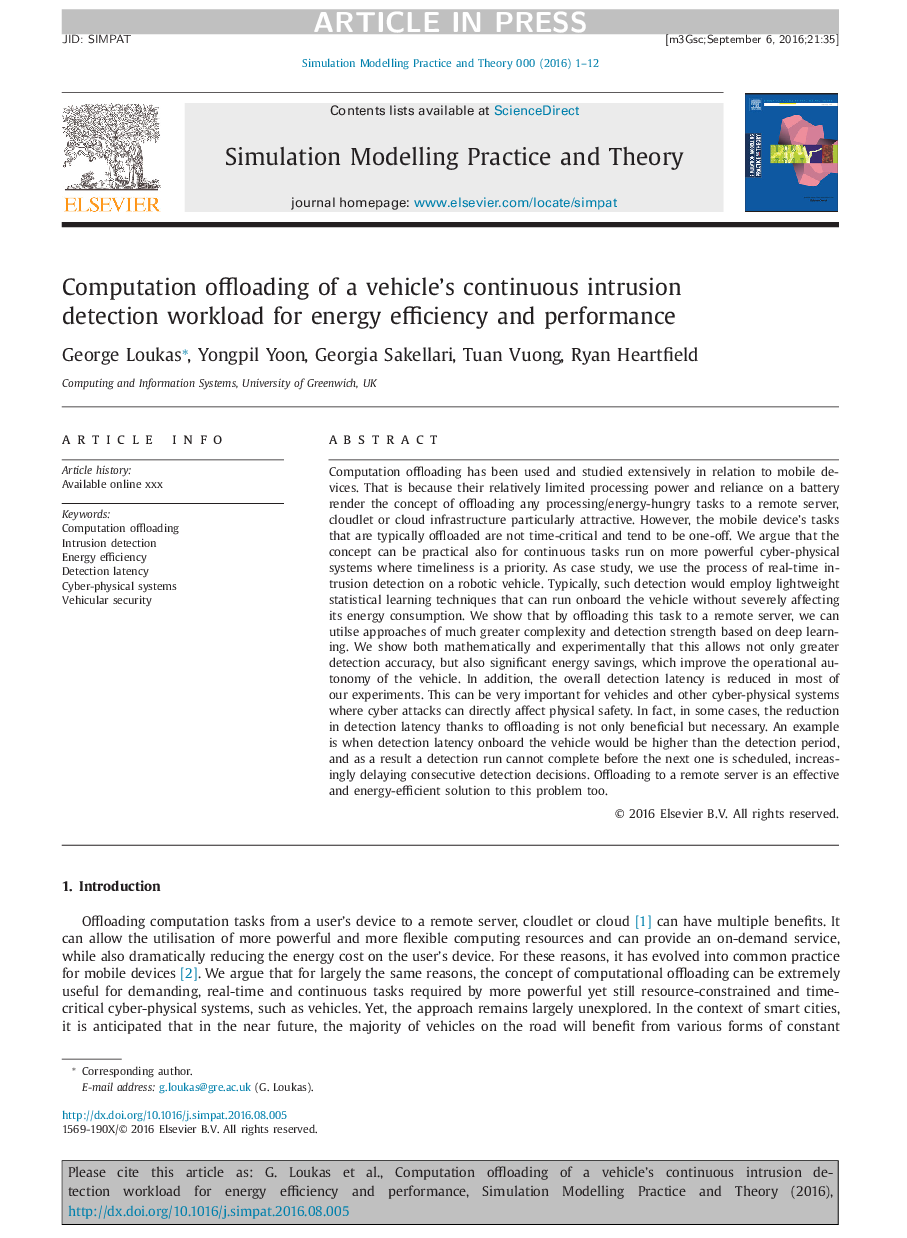| کد مقاله | کد نشریه | سال انتشار | مقاله انگلیسی | نسخه تمام متن |
|---|---|---|---|---|
| 4962711 | 1446654 | 2017 | 12 صفحه PDF | دانلود رایگان |
عنوان انگلیسی مقاله ISI
Computation offloading of a vehicle's continuous intrusion detection workload for energy efficiency and performance
ترجمه فارسی عنوان
محاسبه تخلیه بارگیری تشخیص نفوذ مداوم خودرو برای کارایی و کارایی انرژی
دانلود مقاله + سفارش ترجمه
دانلود مقاله ISI انگلیسی
رایگان برای ایرانیان
کلمات کلیدی
تخلیه محاسباتی، تشخیص نفوذ، بهره وری انرژی، تأخیر تشخیص، سیستم های فیزیکی سایبر، امنیت خودرو
موضوعات مرتبط
مهندسی و علوم پایه
مهندسی کامپیوتر
علوم کامپیوتر (عمومی)
چکیده انگلیسی
Computation offloading has been used and studied extensively in relation to mobile devices. That is because their relatively limited processing power and reliance on a battery render the concept of offloading any processing/energy-hungry tasks to a remote server, cloudlet or cloud infrastructure particularly attractive. However, the mobile device's tasks that are typically offloaded are not time-critical and tend to be one-off. We argue that the concept can be practical also for continuous tasks run on more powerful cyber-physical systems where timeliness is a priority. As case study, we use the process of real-time intrusion detection on a robotic vehicle. Typically, such detection would employ lightweight statistical learning techniques that can run onboard the vehicle without severely affecting its energy consumption. We show that by offloading this task to a remote server, we can utilse approaches of much greater complexity and detection strength based on deep learning. We show both mathematically and experimentally that this allows not only greater detection accuracy, but also significant energy savings, which improve the operational autonomy of the vehicle. In addition, the overall detection latency is reduced in most of our experiments. This can be very important for vehicles and other cyber-physical systems where cyber attacks can directly affect physical safety. In fact, in some cases, the reduction in detection latency thanks to offloading is not only beneficial but necessary. An example is when detection latency onboard the vehicle would be higher than the detection period, and as a result a detection run cannot complete before the next one is scheduled, increasingly delaying consecutive detection decisions. Offloading to a remote server is an effective and energy-efficient solution to this problem too.
ناشر
Database: Elsevier - ScienceDirect (ساینس دایرکت)
Journal: Simulation Modelling Practice and Theory - Volume 73, April 2017, Pages 83-94
Journal: Simulation Modelling Practice and Theory - Volume 73, April 2017, Pages 83-94
نویسندگان
George Loukas, Yongpil Yoon, Georgia Sakellari, Tuan Vuong, Ryan Heartfield,
